Blog •
Last updated on Feb 07, 2024
Becoming a Book Editor: Insights from Publishing Insiders
About the author
Reedsy's editorial team is a diverse group of industry experts devoted to helping authors write and publish beautiful books.
More about the Reedsy Editorial Team →Isabella Peralta
A writer and editor, Isabella coordinates "Prompts," Reedsy's weekly short story competition. Originally from the Philippines, she is a graduate of the University of Cambridge.
View profile →To become a book editor, it’s crucial to have relevant experiences and realistic expectations. The publishing industry is a competitive but also inspiring field to work in, and a book editor’s tasks will range from finding the next rising literary stars to everyday office admin and author care.
It can be hard to know where to start or how to get your foot through the door. Lucky for you, we’ve gathered the inside scoop for this post — along with some tips from insiders in the publishing business.
1. Study the publishing market
The first step toward becoming a book editor is having a solid understanding of the publishing industry. So, if you’re serious about entering this profession, conduct lots of research.
Knowing the names of all the major publishers out there, as well as the types of books you’d like to edit and the types of editing you’d like to specialize in, is a must, and while an English degree can be a plus (more on this later), it’s entirely possible to pick up the necessary skills and knowledge to become a book editor on your own without a degree in Publishing. Above all, employers will be looking for people who are ambitious, knowledgeable about the job they’re applying for, and passionate about what they’re doing.
For example, if you want to become a literary fiction editor, make an effort to stay on top of new releases and industry trends by reading novels that are shortlisted for prestigious literary awards, titles that attract a lot of media attention, and short stories published in literary magazines.
Remember to read widely among new releases and consider how they fit together to form trends. Become skilled at drawing conclusions about the state of the literary world by staying well informed and maybe even visiting bookshops to see what’s displayed on its shelves.
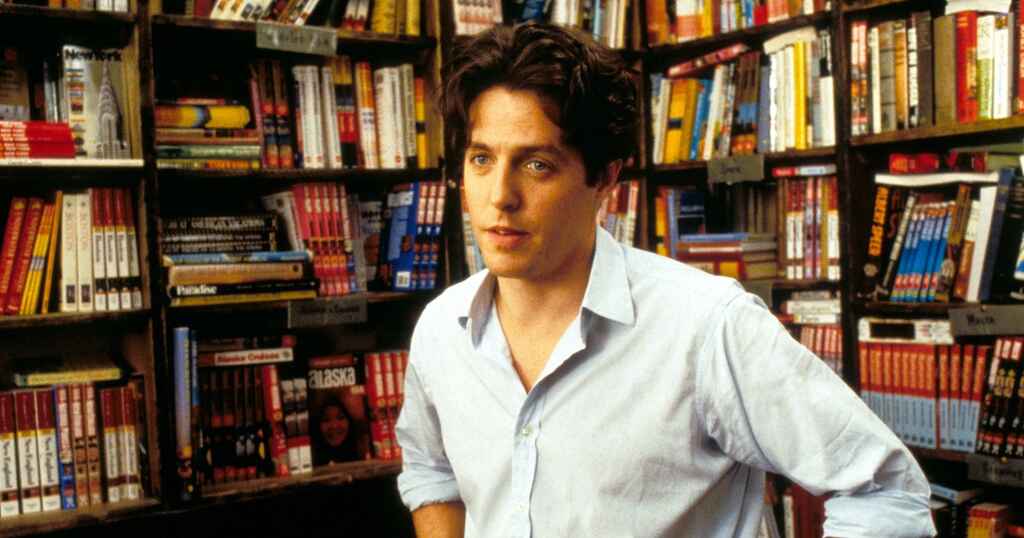
If you’re lucky enough to eventually score an entry-level job in the publishing industry, you’ll most likely be tasked with reading lots of submissions, so you’ll need to know what makes a book effective — and communicate to your higher-ups why.
When you read, try to break down and articulate the elements that are especially successful — from the structure of the story and development of the protagonists to the writing technique. Then, read some reviews or go on social media and see what other editors and readers are saying about the books you’ve read.
Soon enough, you’ll have a good understanding of the recent literary past, appreciate what’s happening on the cutting edge, and be able to speculate on what the future might hold — skills that are invaluable to both working and aspiring editors.
Keep in mind that book editors (or their assistants) are typically responsible for sourcing new projects — they read manuscript samples submitted by literary agents and request full manuscripts for anything that catches their eye, then pitch their choices to management and other departments. If given the green light by the powers-that-be, they can make an offer to authors.
Free course: Inside a Traditional “Big 5” Publisher
Learn what goes on behind the closed doors of publishing
2. Find your book editing specialty
You’ve probably encountered the term “book editor” countless times, but there are many different kinds of editing that go into perfecting a manuscript. Before you fully commit to your book editor journey, take some time to think about the type of editing you can see yourself doing as a career first. You can always re-school yourself later, but for now, it’s good to hone your skills in one area. Let’s take a look at your broad options:
Q: What editing specialties have you focused on, and how did you choose them?
Suggested answer
I've built a niche in, of all places, theology editing (branching into history and philosophy). This wasn't an active choice I made at the beginning of my editing career, just where I naturally ended up by following the stepping stones of different projects and leaning on my minor in Biblical Studies. Since I joined Reedsy, it's been wonderful to connect with many talented writers writing religious memoirs alongside the textbooks I often work on.
Theology is a very technically demanding field, with frequent translations of material from ancient languages and even its own style guide. Once you've bedded down in this field, your skills are always in demand, and I like to think it's (perhaps ironically) a somewhat more future-proof specialism to have than some other mainstream focuses.
Mairi is available to hire on Reedsy ⏺
I did two higher degrees in life writing; my PhD thesis wove theory with my life story and analysis of a medieval Japanese woman's novel, The Tale of Genji. She wove stories of court life in a polygamous, hierarchical society and I found many parallels with my own life. From this foundation, I've built my own memoirs, three published in print and one in audiobook. I've had each one edited, for a writer, no matter how experienced, needs an editor. This gave me a deep understanding of how it is to be an author and how it is to respond to criticism and suggestions. Sometimes the process was painful. The best editor I had entered into my story with empathy and helped me to polish it. That is what I aim for as an editor; to accompany the writer and see the narrative from their point of view while holding the principles of good writing and guiding them where the work needs it. To help them make their story the best it can be. This is my passion.
Christina is available to hire on Reedsy ⏺
Copy editing involves tweaking the language in a manuscript, correcting spelling and grammar mistakes, and making an author’s writing cohesive in tone and style. Copy editors must also be well-informed when it comes to different editing style guides, as well as skilled in scouring for small inconsistencies that may throw readers off.
Top tip: to keep track of all creative decisions and make sure the language in a piece is consistent, copy editors often set up editorial style sheets, where they note down alternative spellings, new names and words, and anything they need a quick reference for.

Proofreading involves fixing all the tiny mistakes that the copy editors didn’t notice and — in traditional publishing — usually comes after the text has been typesetted. It is typically done by a different editor whose eyes are completely new to the text. If you have meticulous attention to detail and an ability to focus for long stretches of time, proofreading might just be for you!
Developmental editing involves looking at the “big picture” of a book and adjusting the narrative and overall structure to whip it into shape. Development editors focus on characterization, plot, pacing, setting, and more to get the foundations of a story right.
With each of these broad channels of book editing comes unique career progression opportunities. A developmental editor may become an acquisitions editor, for instance, while a junior copy editor may become a senior copy editor, and so on and so forth. But before that, you need to make sure you have the skills it takes to make it in this industry.
Q: What resources or training have been most valuable for you in developing your editing skills?
Suggested answer
the Chartered Institute of Editing and Proofreading
Alex is available to hire on Reedsy ⏺
3. Build your credentials
It goes without saying that during the job-hunting process, you should have a CV that’s free of typos if you're applying for editorial jobs. As well as proving you aren't careless with words, this document should also show off your relevant qualifications and experience. Speaking of which...
Acquire relevant qualifications
Universities don’t generally offer courses in editing. Some publishing professionals have postgraduate degrees in Publishing, but this is neither expected nor de rigueur. However, while not strictly mandatory, book editors typically have a bachelor's degree in subjects like English, journalism, or communications. Some editors also have experience in writing, proofreading, or the publishing industry at large.
If you’re still a student and hope to become a book editor, see if there are any publishing-related classes you can take to build your understanding of the industry. Also, make sure to keep your preferred type of book editing in mind when looking at extracurricular activities — for example, if you want to become a copy editor, consider copy editing for your university magazine. Meanwhile, if you want to become a developmental editor, consider taking creative writing classes (and offer to edit your classmates’ writing) or literary criticism classes to get a sense of storytelling techniques.
If you do not have a relevant degree or any degree at all, you’re not out of the game yet: what really matters are your skills and ability to learn. Publishers are slowly starting to reflect this in their hiring practices — Penguin Random House scrapped its degree requirement in 2016, for instance, and HarperCollins does not require a degree for admission to their Early Careers scheme.
To boost their CVs, many aspiring editors also take short proofreading or copy editing courses. These can provide you with valuable skills (and a certificate), but they are in no way essential, and you should not feel obliged to enroll in pricey courses for information that you can acquire through other means, such as popular podcasts for editors or books on editing.
There’s only so much theory and reading one can do, however, as editing is a craft best learned by doing. So pick up your red pen; it’s time to put in your 10,000 hours to gain some relevant experience.
Seek out internships and work placements
Internships and work experience schemes are excellent opportunities to see publishing from the inside and get some hands-on book editing experience. As well as being a great networking opportunity, they can help you better understand how the various departments within each publishing house collaborate.
The biggest issue, however, is that internships are often severely underpaid or not paid at all. It’s a problematic phenomenon that a few publishers are attempting to remedy with the ultimate goal of fostering a truly inclusive and diverse publishing workforce, but opportunities are still scarce.
So what can you do? Suzanne Collier, publishing careers advisor and author of How to Job Search in Book Publishing, advises against taking unpaid internships on principle.
“Unpaid work is something you undertake when you are volunteering for charity or working on your hobbies. Publishing companies, even those with a charitable ethos, are neither of those things. Every commercial company should pay all their staff.”
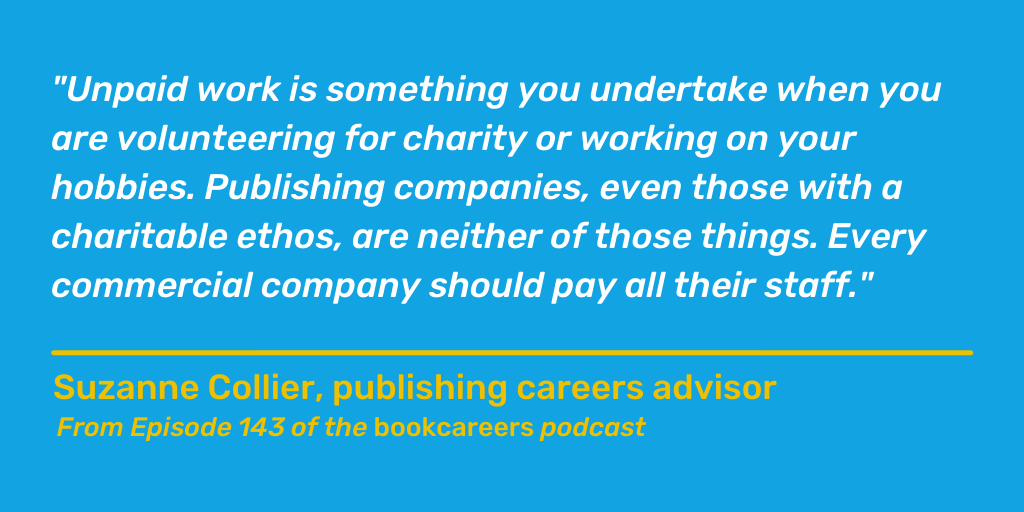
Internships stand for two things in the context of your CV: enthusiasm and some level of publishing awareness. No one will expect you to actually pick up the skills to do a full-time job during a 1-month internship (though longer internships are better training experiences). There are also plenty of other ways to demonstrate enthusiasm and publishing awareness — so if you haven’t interned, all is not lost.
Gather any other relevant experience
Book editors at all levels have to deal with admin work, so any work experience or internship that equips you with basic office skills will work in your favor. Keep in mind that many book editors actually start out as interns or editorial assistants who bear most of the brunt of admin work, such as reading through the slush pile, replying to emails, setting up meetings, photocopying, filing, and monitoring stock levels.
In addition to office administration, here are several related experiences or activities that can be helpful to you and your CV:
- Writing for book-related publications
- Reviewing books online
- Offering beta reading services to authors
- Working as a bookseller
- Being part of student media organizations
- Volunteering as a reader for a nonprofit literary magazine
- Volunteering at a literary festival or event
- Volunteering at a charity bookshop or library
Book editors also work closely with publicists to identify press campaigns and publicity material. They are often responsible for writing cover blurbs, marketing materials, and the book metadata provided to wholesalers
Meanwhile, senior book editors often manage projects and coordinate various tasks, such as consulting with the marketing and publicity teams to devise a campaign strategy and assembling a brief for the design team.
So, to summarize, any previous work experience that involves reading, writing, editing, and/or honing your administrative and project management skills is bound to benefit your professional prospects. Don’t let a rejection from a publishing internship discourage you from pursuing your dream career!
Error No answers could be found.
4. Apply for editorial assistant positions
Generally speaking, the most common points of entry for the publishing industry tend to be entry-level assistant positions or graduate schemes. The latter are usually advertised months in advance and typically start in September, like most graduate schemes.
Before you apply to any jobs, be aware that editorial assistants do a lot less editing than you might expect. Instead, there's a larger emphasis on administrative work, for which you will likely be underpaid relative to the cost of living in publishing-dense cities like New York or London.
We don’t mean to sink your heart: it’s just important that you go into a job prepared. You will need to hustle for some time before you can take the next step up the ladder and secure better compensation and direct editorial duties.
How much can you expect to earn?
Publishing is a competitive industry that notoriously doesn’t pay that well when you start off — so let’s also talk money. As of January 2024, the average editor in the U.S. makes around $65-70k/year. Someone just starting out will earn a lower salary, around $35-55k depending on the quality and quantity of projects they take on — so this is the range an assistant position salary would typically fall within.
5. Plan your next steps
Once you’ve landed your first paying job in publishing, think about how you could take your book editor career to the next level. That may mean climbing the ladder, transitioning from a larger publisher to a smaller or independent press where you may have more freedom, or becoming a freelancer.
Let’s look at all of these options individually.
Climb the ladder
Maybe what you’re thinking is that you like where you’re at, and you just want to see your compensation and trust in your abilities increase. If you’re currently an editorial assistant, the book editing trajectory usually goes like this:
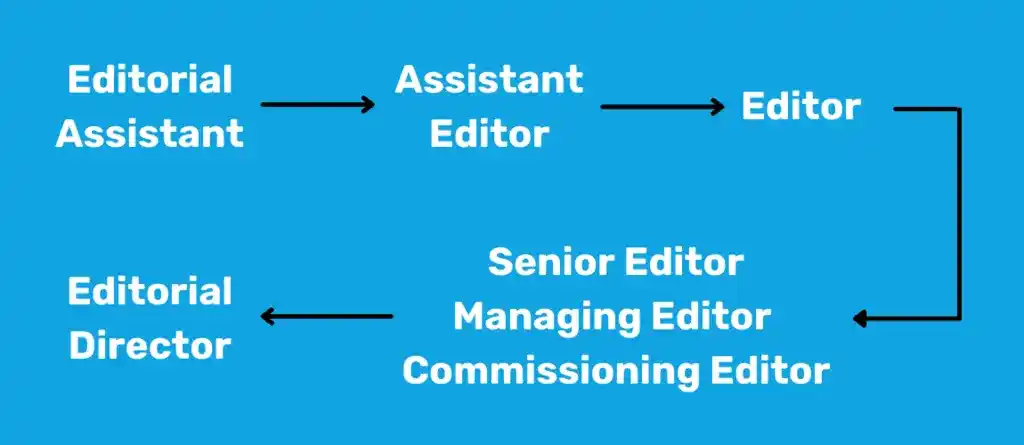
Kimberley Lim joined indie press Gaudy Boy as Managing Editor after spending 6 years as an Editor at Skyhorse Publishing. Her experience coming up in the industry is what some people might see as the standard publishing ladder.
"I started out with an English degree, which I think was helpful in securing me interviews. After my first internship at a literary agency (part-time), I then had enough experience to be given a second internship (full-time) at a mid-size book publisher, where I progressed to a salaried position when a role opened up.
“Working my way up from the ground — from intern to front-desk receptionist to book editor — was helpful because I got to see much of how the entire publishing ecosystem worked together. Additionally, having actual editorial skills on top of general publishing know-how was key — I took a publishing course in my final year at college, which gave me the starting tools and confidence to know I was well-positioned to actually edit books."
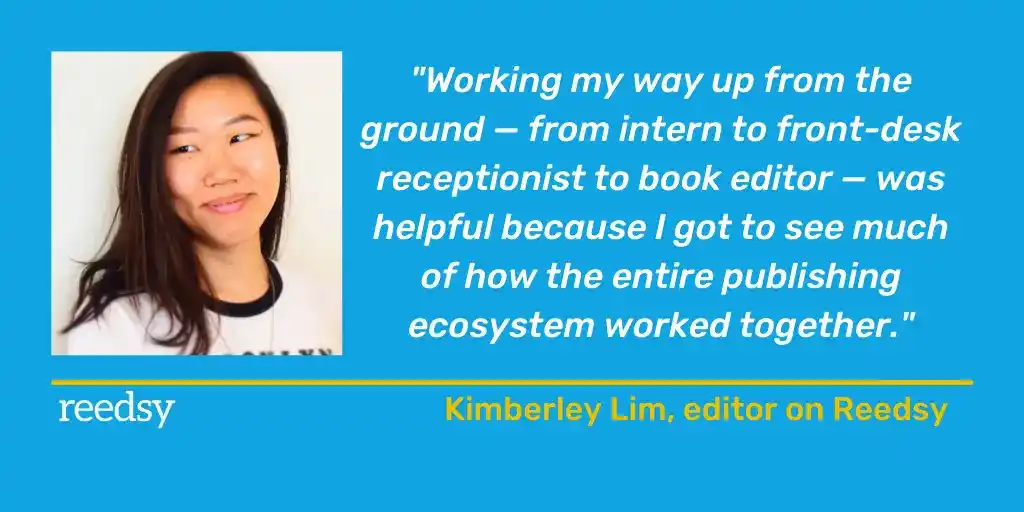 If you struggle to find an editorial assistant position but see an opening for publishing, marketing, or rights assistants, that’s still great! Getting your foot in the door is really important, and you can then look into moving departments internally.
If you struggle to find an editorial assistant position but see an opening for publishing, marketing, or rights assistants, that’s still great! Getting your foot in the door is really important, and you can then look into moving departments internally.
As you settle into the industry, you will build the practical and administrative skills needed for the next few stages of your career. What you can work on improving next is your strategic acumen: the higher up the ladder you climb, the more your superiors will expect creative suggestions and an opinion about what the company should focus on next.
The best way to cultivate this acumen is to keep your eyes open and your critical thinking switched on: keep your finger on the pulse of the publishing world, and ask yourself how things can be done more efficiently or productively.
Transition to an indie press
Larger publishers generally have the financial ability to offer more entry-level positions than independent presses, so it’s unlikely that you’ll start your career at an indie press. However, some editors transition to indie publishers that publish books more specifically aligned with their tastes once they already have some experience under their belts.
Why? Gaudy Boy editor Kimberley Lim points out that working for a smaller publisher aligned with your values can be liberating: “Moving from a bigger trade publisher to a smaller indie press was freeing because, as a member of a small, like-minded team now, I feel closer to our mission and commitment to our authors and their work. Bigger publishers can feel like larger business entities where your voice is lost in the din, whereas at an indie, everyone's fingerprint can be found on the work that's done, and you may even have the opportunity to influence the publishing process and outcome.”
While finding entry-level work at indies can be difficult, Kimberley suggests a couple of “back door” ways to access this niche: “If your dream is to work at an indie, consider entering the publishing industry elsewhere (bookshop, big publisher, agency, etc.) and making connections with indies from there."
Go freelance
Going freelance doesn’t have to be a full-time thing from the get-go — you can try it out as a side hustle and see how you like working for yourself before committing to it full-time. Some professionals, like HarperCollins editor Sara Schonfeld, find that it’s an empowering (not to mention lucrative) move.
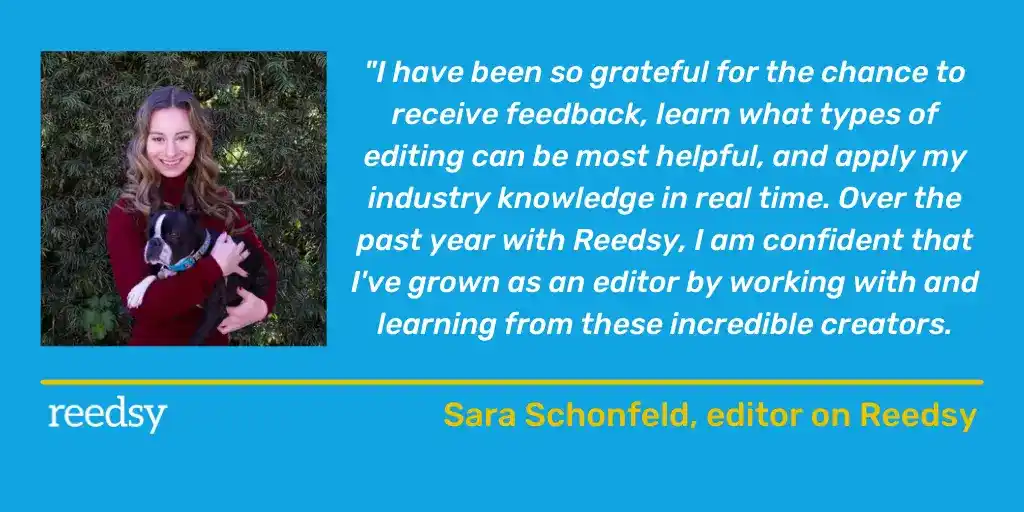
“Freelance editing has been a hugely rewarding process. It's a chance to connect with authors directly and hear from them about their concerns, their passions, and their hopes. I have been so grateful for the chance to receive feedback, learn what types of editing can be most helpful, and apply my industry knowledge in real time.
“Over the past year with Reedsy, I am confident that I've grown as an editor by working with and learning from these incredible creators.”
Sounds appealing? You can sign up to Reedsy to begin your freelance book editing career below.

FREE RESOURCE
The Full-Time Freelancer's Checklist
Get our guide to financial and logistical planning. Then, claim your independence.
A quick tip for budding freelancers: You can join ACES: The Society for Editing for $100/year to gain access to a fantastic community of fellow editors, as well as tips on how to improve your work. You can also become a member of the Editorial Freelancers Association (EFA) for a slightly heftier price tag of $145/year and a couple more perks, such as health discount plans. Check out our research on the EFA to see a full list of benefits (and potential drawbacks) before you sign up.
Q: How did you find your first clients when starting as a freelance editor?
Suggested answer
I left a job in publishing, so first off I had my former colleagues to feed me work - especially useful when they moved to other companies, widening my client base. I also contacted former colleagues and publishing friends from earlier years in the business. When an author I had formerly edited, and stayed in touch with, started self-publishing, he asked me to do his later books too.
Vicki is available to hire on Reedsy ⏺
I did some proofreading as a favour to a friend, which led to two or three short book projects, which was enough to start building a short portfolio. As a mainly non-fiction editor, I was very lucky to have a couple of friends who were research students at the local university. They connected me with students and professors who needed help with their theses and proposals. After two years of (very slowly) building up experience like this, my first long-term freelance collaboration with a traditional publisher came from me responding to a tweet.
Mairi is available to hire on Reedsy ⏺
As a book editor, you have the opportunity to directly influence the literary world and engage with exciting projects that could reach millions of readers. However, there are much easier ways to earn a paycheck, so before you embark on this career, make sure it’s something you’re truly passionate about. Don’t forget — as you make your way through the ups and downs of the industry, it’s that passion that will keep you going!
Reviewed by Linnea Gradin
The editor-in-chief of the Reedsy Freelancer blog, Linnea is a writer and marketer with a degree from the University of Cambridge. Her focus is to provide aspiring editors and book designers with the resources to further their careers.
As the editor of Reedsy’s freelancer blog and a writer on the Reedsy team, Linnea has her hand in a bit of everything, from writing about writing, publishing, and self-publishing, to curating expert content for freelancing professionals. Working together with some of the top talent in the industry, she organizes insightful webinars, and develops resources to make publishing more accessible to writers and (aspiring) publishing professionals alike. When she’s not reading, she can be found dribbling on the football pitch, dabbling in foreign languages, or exploring the local cuisine of whatever country she happens to be in at the time.


